- Home
- Herman Melville
Israel Potter. Fifty Years of Exile Page 10
Israel Potter. Fifty Years of Exile Read online
Page 10
Presently he came to hilly land in meadow, whose grass having been lately cut, now lay dotting the slope in cocks; a sinuous line of creamy vapor meandered through the lowlands at the base of the hill; while beyond was a dense grove of dwarfish trees, with here and there a tall tapering dead trunk, peeled of the bark, and overpeering the rest. The vapor wore the semblance of a deep stream of water, imperfectly descried; the grove looked like some closely-clustering town on its banks, lorded over by spires of churches.
The whole scene magically reproduced to our adventurer the aspect of Bunker Hill, Charles River, and Boston town, on the well-remembered night of the 16th of June. The same season; the same moon; the same new-mown hay on the shaven sward; hay which was scraped together during the night to help pack into the redoubt so hurriedly thrown up.
Acted on as if by enchantment, Israel sat down on one of the cocks, and gave himself up to reverie. But, worn out by long loss of sleep, his reveries would have soon merged into slumber's still wilder dreams, had he not rallied himself, and departed on his way, fearful of forgetting himself in an emergency like the present. It now occurred to him that, well as his disguise had served him in escaping from the mansion of Squire Woodcock, that disguise might fatally endanger him if he should be discovered in it abroad. He might pass for a ghost at night, and among the relations and immediate friends of the gentleman deceased; but by day, and among indifferent persons, he ran no small risk of being apprehended for an entry-thief. He bitterly lamented his omission in not pulling on the Squire's clothes over his own, so that he might now have reappeared in his former guise.
As meditating over this difficulty, he was passing along, suddenly he saw a man in black standing right in his path, about fifty yards distant, in a field of some growing barley or wheat. The gloomy stranger was standing stock-still; one outstretched arm, with weird intimation pointing towards the deceased Squire's abode. To the brooding soul of the now desolate Israel, so strange a sight roused a supernatural suspicion. His conscience morbidly reproaching him for the terrors he had bred in making his escape from the house, he seemed to see in the fixed gesture of the stranger something more than humanly significant.
But somewhat of his intrepidity returned; he resolved to test the apparition. Composing itself to the same deliberate stateliness with which it had paced the hall, the phantom of Squire Woodcock firmly, advanced its cane, and marched straight forward towards the mysterious stranger.
As he neared him, Israel shrunk. The dark coat-sleeve flapped on the bony skeleton of the unknown arm. The face was lost in a sort of ghastly blank. It was no living man.
But mechanically continuing his course, Israel drew still nearer and saw a scarecrow.
Not a little relieved by the discovery, our adventurer paused, more particularly to survey so deceptive an object, which seemed to have been constructed on the most efficient principles; probably by some broken down wax figure costumer. It comprised the complete wardrobe of a scarecrow, namely: a cocked hat, bunged; tattered coat; old velveteen breeches; and long worsted stockings, full of holes; all stuffed very nicely with straw, and skeletoned by a frame-work of poles. There was a great flapped pocket to the coat-which seemed to have been some laborer's-standing invitingly opened. Putting his hands in, Israel drew out the lid of an old tobacco-box, the broken bowl of a pipe, two rusty nails, and a few kernels of wheat. This reminded him of the Squire's pockets. Trying them, he produced a handsome handkerchief, a spectacle-case, with a purse containing some silver and gold, amounting to a little more than five pounds. Such is the difference between the contents of the pockets of scarecrows and the pockets of well-to-do squires. Ere donning his present habiliments, Israel had not omitted to withdraw his own money from his own coat, and put it in the pocket of his own waistcoat, which he had not exchanged.
Looking upon the scarecrow more attentively, it struck him that, miserable as its wardrobe was, nevertheless here was a chance for getting rid of the unsuitable and perilous clothes of the Squire. No other available opportunity might present itself for a time. Before he encountered any living creature by daylight, another suit must somehow be had. His exchange with the old ditcher, after his escape from the inn near Portsmouth, had familiarized him with the most deplorable of wardrobes. Well, too, he knew, and had experienced it, that for a man desirous of avoiding notice, the more wretched the clothes, the better.
For who does not shun the scurvy wretch, Poverty, advancing in battered hat and lamentable coat?
Without more ado, slipping off the Squire's raiment, he donned the scarecrow's, after carefully shaking out the hay, which, from many alternate soakings and bakings in rain and sun, had become quite broken up, and would have been almost dust, were it not for the mildew which damped it. But sufficient of this wretched old hay remained adhesive to the inside of the breeches and coat-sleeves, to produce the most irritating torment.
The grand moral question now came up, what to do with the purse. Would it be dishonest under the circumstances to appropriate that purse?
Considering the whole matter, and not forgetting that he had not received from the gentleman deceased the promised reward for his services as courier, Israel concluded that he might justly use the money for his own. To which opinion surely no charitable judge will demur. Besides, what should he do with the purse, if not use it for his own? It would have been insane to have returned it to the relations.
Such mysterious honesty would have but resulted in his arrest as a rebel, or rascal. As for the Squire's clothes, handkerchief, and spectacle-case, they must be put out of sight with all dispatch. So, going to a morass not remote, Israel sunk them deep down, and heaped tufts of the rank sod upon them. Then returning to the field of corn, sat down under the lee of a rock, about a hundred yards from where the scarecrow had stood, thinking which way he now had best direct his steps. But his late ramble coming after so long a deprivation of rest, soon produced effects not so easy to be shaken off, as when reposing upon the haycock. He felt less anxious too, since changing his apparel.
So before he was aware, he fell into deep sleep.
When he awoke, the sun was well up in the sky. Looking around he saw a farm-laborer with a pitchfork coming at a distance into view, whose steps seemed bent in a direction not far from the spot where he lay.
Immediately it struck our adventurer that this man must be familiar with the scarecrow; perhaps had himself fashioned it. Should he miss it then, he might make immediate search, and so discover the thief so imprudently loitering upon the very field of his operations.
Waiting until the man momentarily disappeared in a little hollow, Israel ran briskly to the identical spot where the scarecrow had stood, where, standing stiffly erect, pulling the hat well over his face, and thrusting out his arm, pointed steadfastly towards the Squire's abode, he awaited the event. Soon the man reappeared in sight, and marching right on, paused not far from Israel, and gave him an one earnest look, as if it were his daily wont to satisfy that all was right with the scarecrow. No sooner was the man departed to a reasonable distance, than, quitting his post, Israel struck across the fields towards London.
But he had not yet quite quitted the field when it occurred to him to turn round and see if the man was completely out of sight, when, to his consternation, he saw the man returning towards him, evidently by his pace and gesture in unmixed amazement. The man must have turned round to look before Israel had done so. Frozen to the ground, Israel knew not what to do; but next moment it struck him that this very motionlessness was the least hazardous plan in such a strait. Thrusting out his arm again towards the house, once more he stood stock still, and again awaited the event.
It so happened that this time, in pointing towards the house, Israel unavoidably pointed towards the advancing man. Hoping that the strangeness of this coincidence might, by operating on the man's superstition, incline him to beat an immediate retreat, Israel kept cool as he might. But the man proved to be of a braver metal than anticipated. In passing th
e spot where the scarecrow had stood, and perceiving, beyond the possibility of mistake, that by, some unaccountable agency it had suddenly removed itself to a distance, instead of being, terrified at this verification of his worst apprehensions, the man pushed on for Israel, apparently resolved to sift this mystery to the bottom.
Seeing him now determinately coming, with pitchfork valiantly presented, Israel, as a last means of practising on the fellow's fears of the supernatural, suddenly doubled up both fists, presenting them savagely towards him at a distance of about twenty paces, at the same time showing his teeth like a skull's, and demoniacally rolling his eyes. The man paused bewildered, looked all round him, looked at the springing grain, then across at some trees, then up at the sky, and satisfied at last by those observations that the world at large had not undergone a miracle in the last fifteen minutes, resolutely resumed his advance; the pitchfork, like a boarding-pike, now aimed full at the breast of the object. Seeing all his stratagems vain, Israel now threw himself into the original attitude of the scarecrow, and once again stood immovable.
Abating his pace by degrees almost to a mere creep, the man at last came within three feet of him, and, pausing, gazed amazed into Israel's eyes.
With a stern and terrible expression Israel resolutely returned the glance, but otherwise remained like a statue, hoping thus to stare his pursuer out of countenance. At last the man slowly presented one prong of his fork towards Israel's left eye. Nearer and nearer the sharp point came, till no longer capable of enduring such a test, Israel took to his heels with all speed, his tattered coat-tails streaming behind him. With inveterate purpose the man pursued. Darting blindly on, Israel, leaping a gate, suddenly found himself in a field where some dozen laborers were at work, who recognizing the scarecrow-an old acquaintance of theirs, as it would seem-lifted all their hands as the astounding apparition swept by, followed by the man with the pitchfork. Soon all joined in the chase, but Israel proved to have better wind and bottom than any. Outstripping the whole pack he finally shot out of their sight in an extensive park, heavily timbered in one quarter. He never saw more of these people.
Loitering in the wood till nightfall, he then stole out and made the best of his way towards the house of that good natured farmer in whose corn-loft he had received his first message from Squire Woodcock.
Rousing this man up a little before midnight, he informed him somewhat of his recent adventures, but carefully concealed his having been employed as a secret courier, together with his escape from Squire Woodcock's. All he craved at present was a meal. The meal being over, Israel offered to buy from the farmer his best suit of clothes, and displayed the money on the spot.
"Where did you get so much money?" said his entertainer in a tone of surprise; "your clothes here don't look as if you had seen prosperous times since you left me. Why, you look like a scarecrow."
"That may well be," replied Israel, very soberly. "But what do you say? will you sell me your suit? — here's the cash."
"I don't know about it," said the farmer, in doubt; "let me look at the money. Ha! — a silk purse come out of a beggars pocket! — Quit the house, rascal, you've turned thief."
Thinking that he could not swear to his having come by his money with absolute honesty-since indeed the case was one for the most subtle casuist-Israel knew not what to reply. This honest confusion confirmed the farmer, who with many abusive epithets drove him into the road, telling him that he might thank himself that he did not arrest him on the spot.
In great dolor at this unhappy repulse, Israel trudged on in the moonlight some three miles to the house of another friend, who also had once succored him in extremity. This man proved a very sound sleeper.
Instead of succeeding in rousing him by his knocking, Israel but succeeded in rousing his wife, a person not of the greatest amiability.
Raising the sash, and seeing so shocking a pauper before her, the woman upbraided him with shameless impropriety in asking charity at dead of night, in a dress so improper too. Looking down at his deplorable velveteens, Israel discovered that his extensive travels had produced a great rent in one loin of the rotten old breeches, through which a whitish fragment protruded.
Remedying this oversight as well as he might, he again implored the woman to wake her husband.
"That I shan't!" said the woman, morosely. "Quit the premises, or I'll throw something on ye."
With that she brought some earthenware to the window, and would have fulfilled her threat, had not Israel prudently retreated some paces.
Here he entreated the woman to take mercy on his plight, and since she would not waken her husband, at least throw to him (Israel) her husband's breeches, and he would leave the price of them, with his own breeches to boot, on the sill of the door.
"You behold how sadly I need them," said he; "for heaven's sake befriend me."
"Quit the premises!" reiterated the woman.
"The breeches, the breeches! here is the money," cried Israel, half furious with anxiety.
"Saucy cur," cried the woman, somehow misunderstanding him; "do you cunningly taunt me with wearing the breeches'? begone!"
Once more poor Israel decamped, and made for another friend. But here a monstrous bull-dog, indignant that the peace of a quiet family should be disturbed by so outrageous a tatterdemalion, flew at Israel's unfortunate coat, whose rotten skirts the brute tore completely off, leaving the coat razeed to a spencer, which barely came down to the wearer's waist. In attempting to drive the monster away, Israel's hat fell off, upon which the dog pounced with the utmost fierceness, and thrusting both paws into it, rammed out the crown and went snuffling the wreck before him. Recovering the wretched hat, Israel again beat a retreat, his wardrobe sorely the worse for his visits. Not only was his coat a mere rag, but his breeches, clawed by the dog, were slashed into yawning gaps, while his yellow hair waved over the top of the crownless beaver, like a lonely tuft of heather on the highlands.
In this plight the morning discovered him dubiously skirmishing on the outskirts of a village.
"Ah! what a true patriot gets for serving his country!" murmured Israel. But soon thinking a little better of his case, and seeing yet another house which had once furnished him with an asylum, he made bold to advance to the door. Luckily he this time met the man himself, just emerging from bed. At first the farmer did not recognize the fugitive, but upon another look, seconded by Israel's plaintive appeal, beckoned him into the barn, where directly our adventurer told him all he thought prudent to disclose of his story, ending by once more offering to negotiate for breeches and coat. Having ere this emptied and thrown away the purse which had played him so scurvy a trick with the first farmer, he now produced three crown-pieces.
"Three crown-pieces in your pocket, and no crown to your hat!" said the farmer.
"But I assure you, my friend," rejoined Israel, "that a finer hat was never worn, until that confounded bull-dog ruined it."
"True," said the farmer, "I forgot that part of your story. Well, I have a tolerable coat and breeches which I will sell you for your money."
In ten minutes more Israel was equipped in a gray coat of coarse cloth, not much improved by wear, and breeches to match. For half-a-crown more he procured a highly respectable looking hat.
"Now, my kind friend," said Israel, "can you tell me where Horne Tooke and John Bridges live?"
Our adventurer thought it his best plan to seek out one or other of those gentlemen, both to report proceedings and learn confirmatory tidings concerning Squire Woodcock, touching whose fate he did not like to inquire of others.
"Horne Tooke? What do you want with Horne Tooke," said the farmer. "He was Squire Woodcock's friend, wasn't he? The poor Squire! Who would have thought he'd have gone off so suddenly. But apoplexy comes like a bullet."
"I was right," thought Israel to himself. "But where does Horne Tooke live?" he demanded again.
"He once lived in Brentford, and wore a cassock there. But I hear he's sold out his living
, and gone in his surplice to study law in Lunnon."
This was all news to Israel, who, from various amiable remarks he had heard from Horne Tooke at the Squire's, little dreamed he was an ordained clergyman. Yet a good-natured English clergyman translated Lucian; another, equally good-natured, wrote Tristam Shandy; and a third, an ill-natured appreciator of good-natured Rabelais, died a dean; not to speak of others. Thus ingenious and ingenuous are some of the English clergy.
"You can't tell me, then, where to find Horne Tooke?" said Israel, in perplexity.
"You'll find him, I suppose, in Lunnon."
"What street and number?"
"Don't know. Needle in a haystack."
"Where does Mr. Bridges live?"
"Never heard of any Bridges, except Lunnon bridges, and one Molly Bridges in Bridewell."
So Israel departed; better clothed, but no wiser than before.
What to do next? He reckoned up his money, and concluded he had plenty to carry him back to Doctor Franklin in Paris. Accordingly, taking a turn to avoid the two nearest villages, he directed his steps towards London, where, again taking the post-coach for Dover, he arrived on the channel shore just in time to learn that the very coach in which he rode brought the news to the authorities there that all intercourse between the two nations was indefinitely suspended. The characteristic taciturnity and formal stolidity of his fellow-travellers-all Englishmen, mutually unacquainted with each other, and occupying different positions in life-having prevented his sooner hearing the tidings.
Here was another accumulation of misfortunes. All visions but those of eventual imprisonment or starvation vanished from before the present realities of poor Israel Potter. The Brentford gentleman had flattered him with the prospect of receiving something very handsome for his services as courier. That hope was no more. Doctor Franklin had promised him his good offices in procuring him a passage home to America. Quite out of the question now. The sage had likewise intimated that he might possibly see him some way remunerated for his sufferings in his country's cause. An idea no longer to be harbored. Then Israel recalled the mild man of wisdom's words-"At the prospect of pleasure never be elated; but without depression respect the omens of ill." But he found it as difficult now to comply, in all respects, with the last section of the maxim, as before he had with the first.

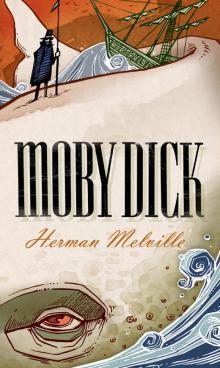 Moby Dick; Or, The Whale
Moby Dick; Or, The Whale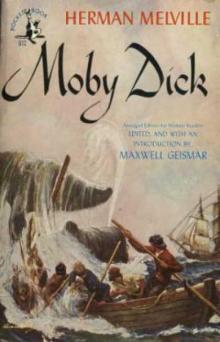 Moby Dick
Moby Dick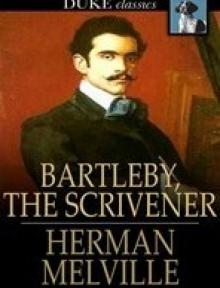 Benito Cereno and Bartleby the Scrivener
Benito Cereno and Bartleby the Scrivener Israel Potter: His Fifty Years of Exile (Annotated Edition)
Israel Potter: His Fifty Years of Exile (Annotated Edition)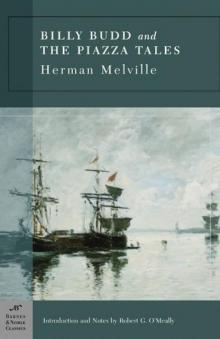 Billy Budd and the Piazza Tales
Billy Budd and the Piazza Tales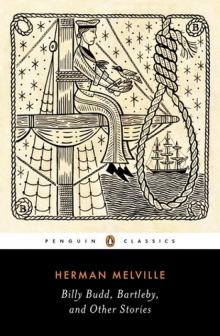 Billy Budd, Bartleby, and Other Stories
Billy Budd, Bartleby, and Other Stories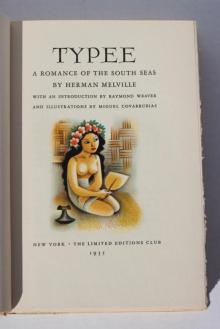 Typee: A Romance of the South Seas
Typee: A Romance of the South Seas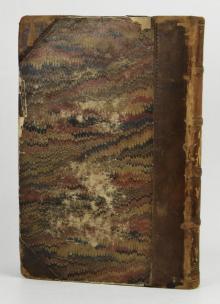 Omoo: Adventures in the South Seas
Omoo: Adventures in the South Seas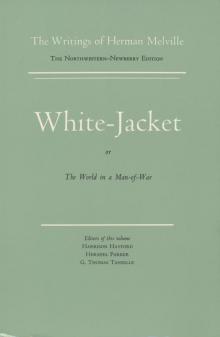 White Jacket; Or, The World on a Man-of-War
White Jacket; Or, The World on a Man-of-War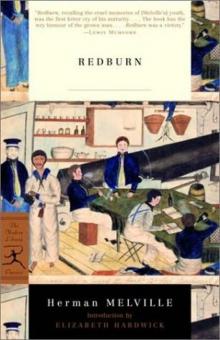 Redburn. His First Voyage
Redburn. His First Voyage Mardi: and A Voyage Thither, Vol. II
Mardi: and A Voyage Thither, Vol. II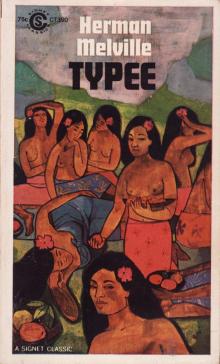 Typee
Typee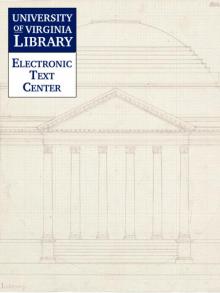 The Paradise of Bachelors and the Tartarus of Maids
The Paradise of Bachelors and the Tartarus of Maids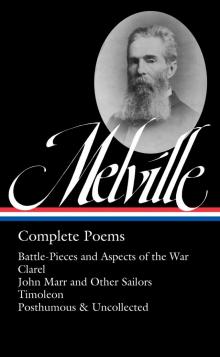 Herman Melville- Complete Poems
Herman Melville- Complete Poems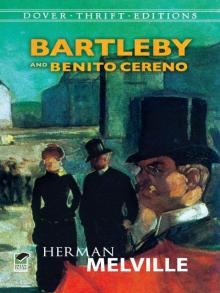 Bartleby and Benito Cereno
Bartleby and Benito Cereno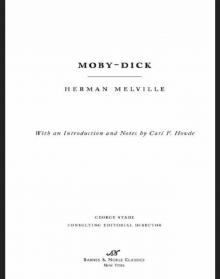 Moby-Dick (Barnes & Noble Classics Series)
Moby-Dick (Barnes & Noble Classics Series)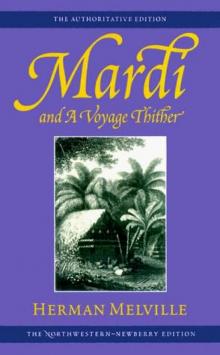 Mardi and a Voyage Thither
Mardi and a Voyage Thither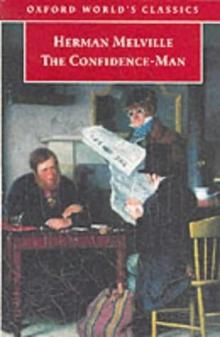 The Confidence-Man
The Confidence-Man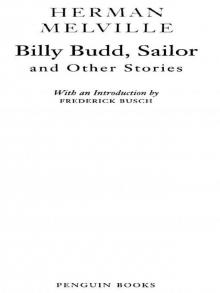 Billy Budd and Other Stories
Billy Budd and Other Stories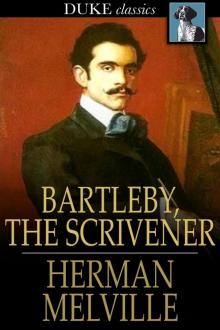 Bartleby the Scrivener
Bartleby the Scrivener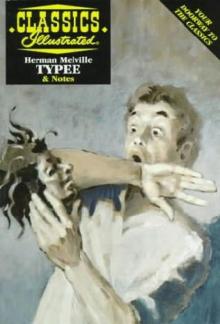 Typee: A Romance of the South Sea
Typee: A Romance of the South Sea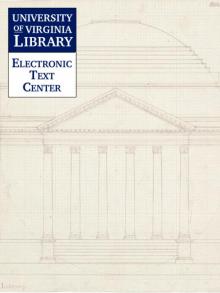 I and My Chimney
I and My Chimney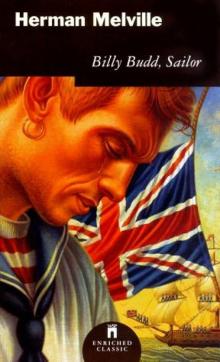 Billy Budd
Billy Budd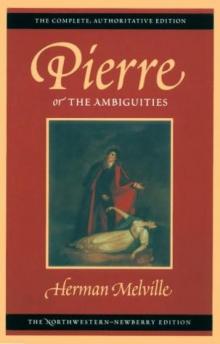 Pierre, Or the Ambiguities
Pierre, Or the Ambiguities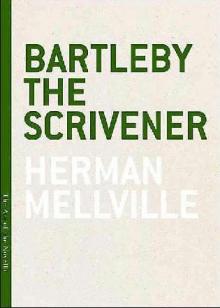 Bartleby, The Scrivener A Story of Wall-Street
Bartleby, The Scrivener A Story of Wall-Street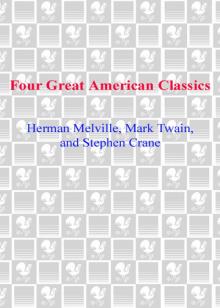 Four Great American Classics
Four Great American Classics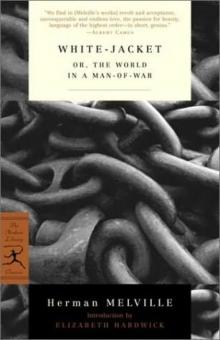 White Jacket or, The World on a Man-of-War
White Jacket or, The World on a Man-of-War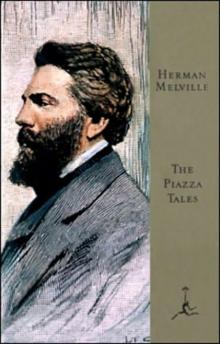 The Piazza Tales
The Piazza Tales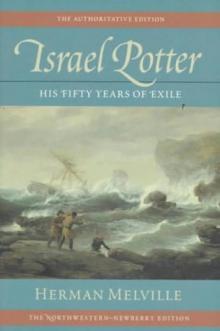 Israel Potter. Fifty Years of Exile
Israel Potter. Fifty Years of Exile